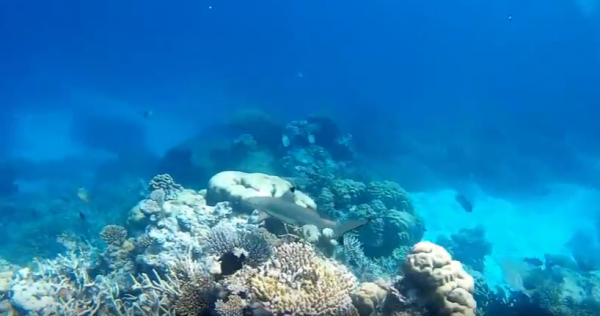By Staff Reporter, | March 28, 2017

The Great Barrier Reef Is Suffering Yet Another Mass Bleaching; Bleaching Event About To Get Worse
While climate change has been very evident here on land, there has been an ongoing confirmation that even creatures in the water and Great Barrier Reef are greatly affected too. As a matter of fact, a great number of coral reefs are in great danger as the situation worsens form time to time.
Like Us on Facebook
The biggest bleaching that happened just recently blew out tons of coral reefs in the water. And while experts are looking for the best solution in the climate change, they are still overwhelmed its impact in the aquatic ecosystem. Recent studies showed that the Great Barrier Reef in Australia is experiencing the drastic effect that the climate change is bringing. Experts told that the condition of the Earth has been one of the primary reasons why coral bleaching occurs for the past years.
News also reported that the ocean warming had caused 40 percent of corals in the South China Sea to die. There has been a recent study that showed how our current situation is directly proportionate to what is happening in the reef.
Moreover, it was explained that the global warming can easily put on risk the lives of the coral reefs. As it was sited, the increased temperatures push the symbiotic algae living in their cells. Once it is expelled, they starved and eventually die. People who are in care of the marine ecosystem also told that the humans have high contributing factor in the lives of the coral reefs, either to keep them alive or to let them die faster. Meanwhile, University of Exeter's Geography Department Professor Chris Perry and Dr. Kyle Morgan explained in The Ecologist how the bleaching of coral reefs impacted the life in the reef. As it was stated:
"The most alarming aspect of this coral die-off event is that it has led to a rapid and very large decline in the growth rate of the reefs. This in turn has major implications not only for the capacity of these reefs to match any increases in sea-level, but is also likely to lead to a loss of the surface structure of the reefs that is so critical for supporting fish species diversity and abundance."
With this, some of the organizations impose rules and regulations that would increase the chances of the sea creatures to live peacefully and protect the Great Barrier Reef.
-
Use of Coronavirus Pandemic Drones Raises Privacy Concerns: Drones Spread Fear, Local Officials Say

-
Coronavirus Hampers The Delivery Of Lockheed Martin F-35 Stealth Fighters For 2020

-
Instagram Speeds Up Plans to Add Account Memorialization Feature Due to COVID-19 Deaths

-
NASA: Perseverance Plans to Bring 'Mars Rock' to Earth in 2031

-
600 Dead And 3,000 In The Hospital as Iranians Believed Drinking High-Concentrations of Alcohol Can Cure The Coronavirus

-
600 Dead And 3,000 In The Hospital as Iranians Believed Drinking High-Concentrations of Alcohol Can Cure The Coronavirus

-
COVID-19: Doctors, Nurses Use Virtual Reality to Learn New Skills in Treating Coronavirus Patients







